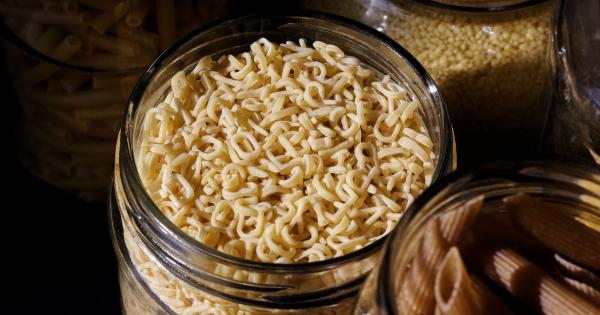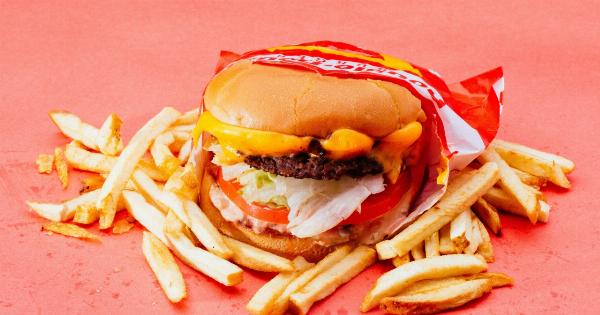Do you ever find yourself caught in the trap of constantly buying new products, even when you don’t really need them? You might be surprised to learn that the labels on these products are often to blame.
Misleading labels can make us believe that we need a product or that it’s better than it really is, leading us to buy more than we actually need. In this article, we’ll explore some of the most common misleading labels and how they can affect our behavior.
1. “Natural”
The label “natural” is often used to describe products that are supposed to be healthier, safer, or more eco-friendly. However, this label can be extremely misleading.
The FDA does not have a strict definition of what “natural” means, so manufacturers can use the label even if the product contains synthetic ingredients. In fact, many “natural” products are no better for you than their non-natural counterparts.
2. “Organic”
Similarly, the label “organic” can also be misleading. While organic farming practices may be better for the environment, they do not necessarily mean that a product is healthier or more nutritious.
In fact, some organic products may contain just as many additives and preservatives as non-organic products. Additionally, the USDA certification process for organic products is not foolproof, so it’s important to do your own research before assuming that an organic label means a product is better for you.
3. “Low Fat”
Many people assume that foods labeled as “low fat” are automatically healthier than their full-fat counterparts. However, this isn’t always true.
Many low-fat products contain added sugar or other fillers to make up for the lack of fat, which can actually make them less healthy than the full-fat version. Additionally, fat is an important nutrient that our bodies need, so cutting it out entirely isn’t always the best choice.
4. “Sugar-Free”
Just like with “low fat” products, many people assume that foods labeled as “sugar-free” are automatically healthier. However, this label can be extremely misleading.
Many sugar-free products contain sugar substitutes like aspartame or sucralose, which can have negative effects on our health. Additionally, some sugar-free products are still high in calories, so they may not actually help you lose weight.
5. “Whole Grain”
The label “whole grain” is often used to promote the health benefits of certain foods, such as bread or cereal. However, not all whole grain products are created equal.
Some products may contain only a small percentage of whole grains, while others may be loaded with added sugar or other fillers. It’s important to read the ingredient list to make sure that a “whole grain” product is actually a healthy choice.
6. “Made with Real Fruit”
Many packaged foods, such as snack bars, claim to be “made with real fruit.” However, this label can be extremely misleading.
Often, the “real fruit” is in the form of a puree or concentrate, which may not actually contain all of the nutrients and fiber of whole fruit. Additionally, many of these products are high in added sugar and other additives, which can negate any potential health benefits of the fruit.
7. “Antibacterial”
Many cleaning products, soaps, and other personal care products claim to be “antibacterial.” While this label may sound reassuring, it’s actually misleading.
Antibacterial products have not been proven to be any more effective than regular soap and water at preventing the spread of germs. Additionally, the overuse of antibacterial products can lead to the development of antibiotic-resistant bacteria, which can be extremely dangerous.
8. “All Natural”
Similar to “natural,” the label “all natural” is often used to make products seem healthier, safer, or more eco-friendly.
However, just like with “natural,” there is no strict definition of what “all natural” means, so manufacturers can use the label even if the product contains synthetic ingredients. Additionally, even if a product is all natural, it may not necessarily be healthy or safe.
9. “Fragrance-Free”
The label “fragrance-free” is often used to promote products that are supposed to be gentler on the skin, especially when it comes to personal care products like shampoo or lotion. However, this label can be misleading.
“Fragrance-free” doesn’t necessarily mean that a product doesn’t contain any fragrances at all – it just means that it doesn’t contain any additional fragrances beyond those used to mask unpleasant odors. Additionally, some fragrance-free products may still contain other potentially harmful ingredients, so it’s important to read the label carefully.
10. “Dermatologist-Tested”
The label “dermatologist-tested” is often used to make skincare products seem more trustworthy. However, this label can be misleading.
It doesn’t necessarily mean that a product has been tested for safety or efficacy – it just means that a dermatologist was involved in some way, whether that was testing the product on a single person or simply giving feedback on the formula. Additionally, dermatologist-tested products may not necessarily be the best choice for everyone, so it’s important to do your own research and know your own skin type and preferences.
Conclusion
Misleading labels can have a major impact on our purchasing and consumption habits. By understanding some of the most common misleading labels, we can start to make more informed choices about the products we buy.
It’s important to read the ingredient list and do your own research before assuming that a label means a product is healthy, safe, or environmentally friendly. By being more mindful of the labels we encounter, we can make healthier and more sustainable choices that benefit both ourselves and the planet.




























